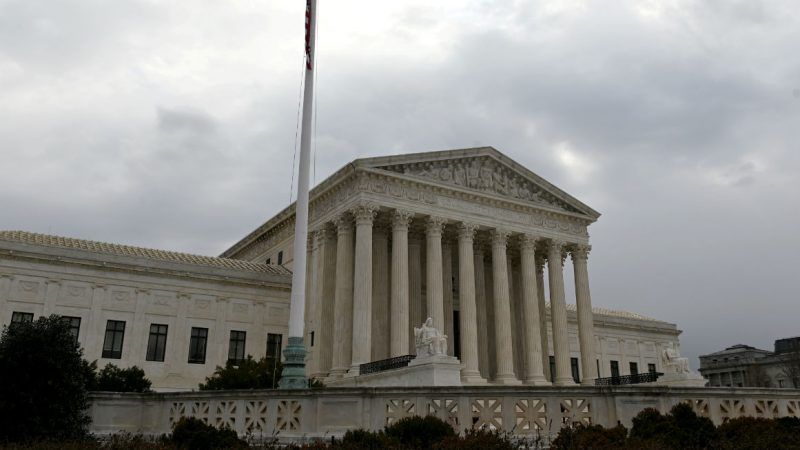The Supreme Court Declines to Hear the Case of a Rapper Convicted for His Anti-Cop Lyrics
The case drew support from rappers like Killer Mike, Chance the Rapper, and Meek Mill.

Rap music is once again in the middle of a First Amendment battle. This time, it's because the Supreme Court of the United States will not hear the case of a Pittsburgh rapper whose lyrics led to conviction.
The fight began with the April 2012 arrest of Jamal Knox, known to his fans as Mayhem Mal. Police Officer Michael Kosko pulled over Knox and a friend in a routine traffic stop. The pair sped away and then led a chase on foot after crashing the vehicle. After being captured and arrested, police found bags of heroin, cash, and a stolen firearm. Knox went by a false name until Detective Daniel Zeltner, who recognized both men, confirmed his real identity.
After Kosko and Seltner planned to testify against the pair in court, Knox and his friend released a song called, "Fuck the Police." Kosko and Seltner were mentioned by name in the song and their pictures appeared in an associated music video. The song lyrics depicted killing officers and informants, suggested that the rappers knew where the officers lived, and referenced a man who had previously killed three officers in the city.
The song, a court later ruled, met the definition of "true threats" and were therefore constitutionally unprotected. Knox and his friend were convicted of and jailed for making terroristic threats and intimidation. The rapper later appealed, saying that the conviction was in violation of his First Amendment right to free speech.
This week, the Supreme Court of the United States declined to hear Knox's appeal. Though this means that the conviction will be upheld, Knox's case has effectively opened the door for the high court to further examine free speech, threats, and rap music.
The Supreme Court granted a motion to file an amicus curiae, or friend of the court, brief from last month.
The March brief was submitted by rappers like Killer Mike, Chance the Rapper, and Meek Mill in an attempt to ask the Supreme Court to hear Knox's case. The artists argued that rap music "has been the subject of unique scrutiny in determining when speech constitutes a true threat of violence and thus falls outside the ambit of First Amendment protection, in part because of its close association with the black men who historically have created it."
To paint a picture of the intense scrutiny that rap music faces, the brief compared rap to country music, which similarly "depicts sex, drug or alcohol (ab)use, poverty, and certainly violence." Despite their similarities, and the existence of murder ballads in country music, the brief cited a study where a social psychologist found disproportionately negative reactions when lyrics were presented as rap instead of country.
Of course, the brief also mentions N.W.A.'s "Fuck tha Police," which has endured its own First Amendment fight. The protest anthem expresses frustrations between the black American community and police officers by using court imagery—the rappers put the police on trial. The brief explains that the song could not "objectively" be seen as a threat.
Though justices ultimately declined to hear Knox's appeal, the Supreme Court heard a similar case several years ago. Elonis v. United States (2015) centered around the conviction of Anthony Elonis, who made Facebook threats against coworkers, his wife, police, and an FBI agent. The court ruled that a "true threat" conviction required proof of intent to act upon the threats. Justice Clarence Thomas, the lone voice of dissent, argued that posted threats were enough to establish intent.


Show Comments (24)